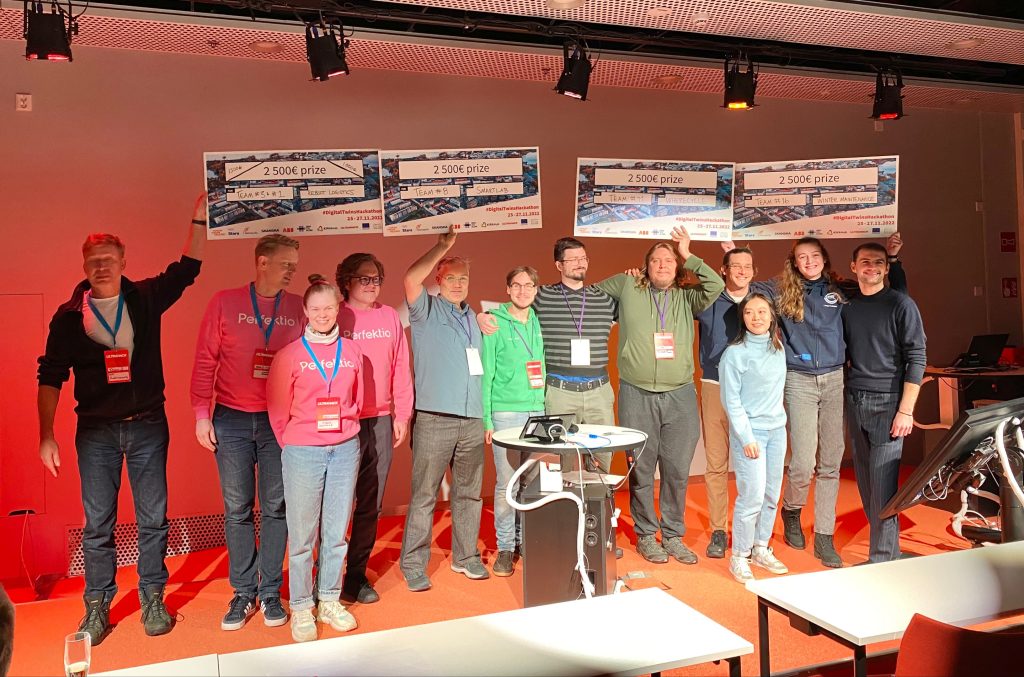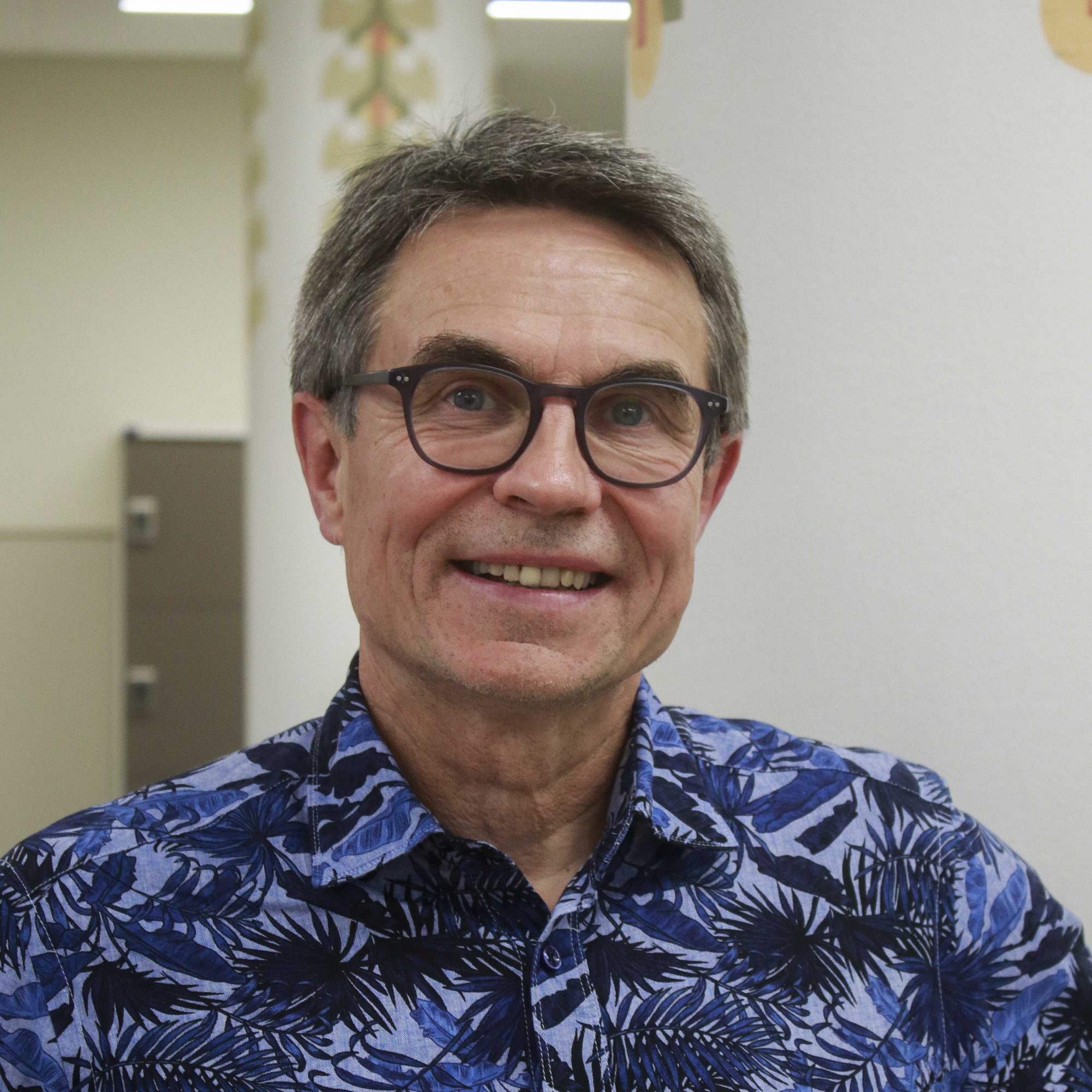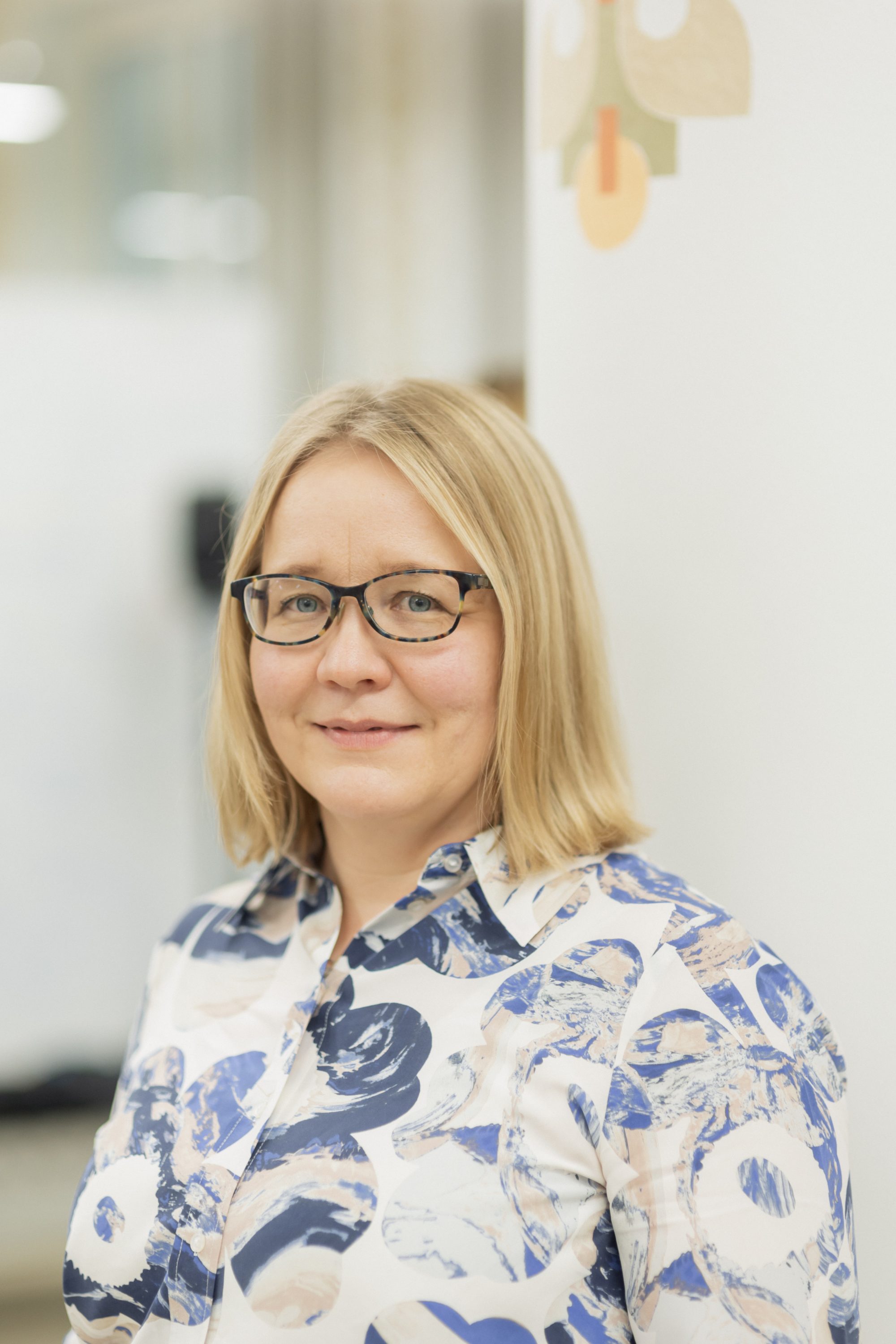What kind of innovations are created when 17 teams are given a weekend to develop solutions to the challenges of sustainable future housing, the circular economy of construction, urban space maintenance and urban logistics? The Digital Twins Hackathon brought together students and companies to Metropolia University of Applied Sciences’ Myllypuro campus to find solutions for building a sustainable future in the most functional city.
At the hackathon, 17 teams of 57 participants were able to develop new solutions for the event’s partners during the weekend’s challenges. Each challenge had a prize pool of €2,500 and the winners get a chance to see their idea come true after the event.
“As a concept, a hackathon is a great way to promote innovation and networking with actors from different fields, as students, companies and mentors work intensively together over the weekend. Facilitated brainstorming also helps to formulate the solution efficiently,” says Anna-Stina Tähkävuori, Innovation Director of Metropolia’s data-driven construction.
Concreteness and user-centricity play a key role in the development of hackathon solutions
The challenges of the Digital Twins Hackathon were given by Metropolia, Skanska, ABB, Forum Virium Helsinki and Stara. The mentors supporting the teams offered their expertise in developing innovations.
Metropolia’s Wherecycle challenge led the teams to look for circular economy solutions that help the user assess how parts of the building to be demolished can be reused in new buildings or locations and consider factors affecting the carbon footprint. The judges selected the Floor Plan to IFC team as the winner of the challenge.
“The groups took the challenge seriously and did a good job. The solutions were concrete, and we are interested in continuing our cooperation with a couple of groups in the upcoming Digipurku project, which offers groups the opportunity to develop their solutions presented in the hackathon,” says Seppo Törmä, Principal Lecturer at Metropolia.
“The three competent teams responded differently to the wide-ranging challenge. We were looking for new approaches and solutions, and this was a very successful package. It was interesting to see the teams at work and to be able to communicate with everyone for the future,” says Ronny Rantamäki, Senior Planning Officer at the City of Helsinki’s circular economy cluster programme.
SmartLab, located on the Myllypuro campus, is an apartment built in cooperation between Metropolia, Skanska and ABB for the development and testing of technology that serves housing. Together, Skanska and ABB challenged the teams to develop solutions in the SmartLab challenge for human-centered and sustainable living of the future. The teams were asked to provide innovative and user-centric solutions that promote a smarter housing ecosystem and create conditions for more sustainable living. The winner of the challenge was the Neighborsquare team.
“I expected bold openings from the teams and a new kind of perspective to enable more sustainable and smart living. I was pleased that all the teams met my expectations, and it was a pleasure to work together with the teams to turn abstract ideas into viable market solutions,” says Development Manager Valentin Velinov from Skanska.
“Our goal was to get a fresh perspective and innovative ideas for user-oriented smart home development and enabling more sustainable living. The teams’ perspectives differed in their work and it was interesting to be sparring on very different ideas. It was great to network with people interested in smart future housing, as it brings a new kind of vision to our own development and innovation,” says Technical Expert Sakari Hannikka from ABB.
Together with Forum Virium Helsinki and Stara, Metropolia organized the Digital Twins Hackathon – Building sustainable futures within the most functional city hackathon in Helsinki on 25.-27.11.2022. The partners of the hackathon were Urban Tech Helsinki, KiraHub, and ABB with Skanska.
Further information:
Anna-Stina Tähkävuori
Chief Innovation Officer, Metropolia University of Applied Sciences
anna-stina.tahkavuori (a)metropolia.fi
+358 40 670 8525
Metropolia University of Applied Sciences
Text and photo: Metropolia University of Applied Sciences



